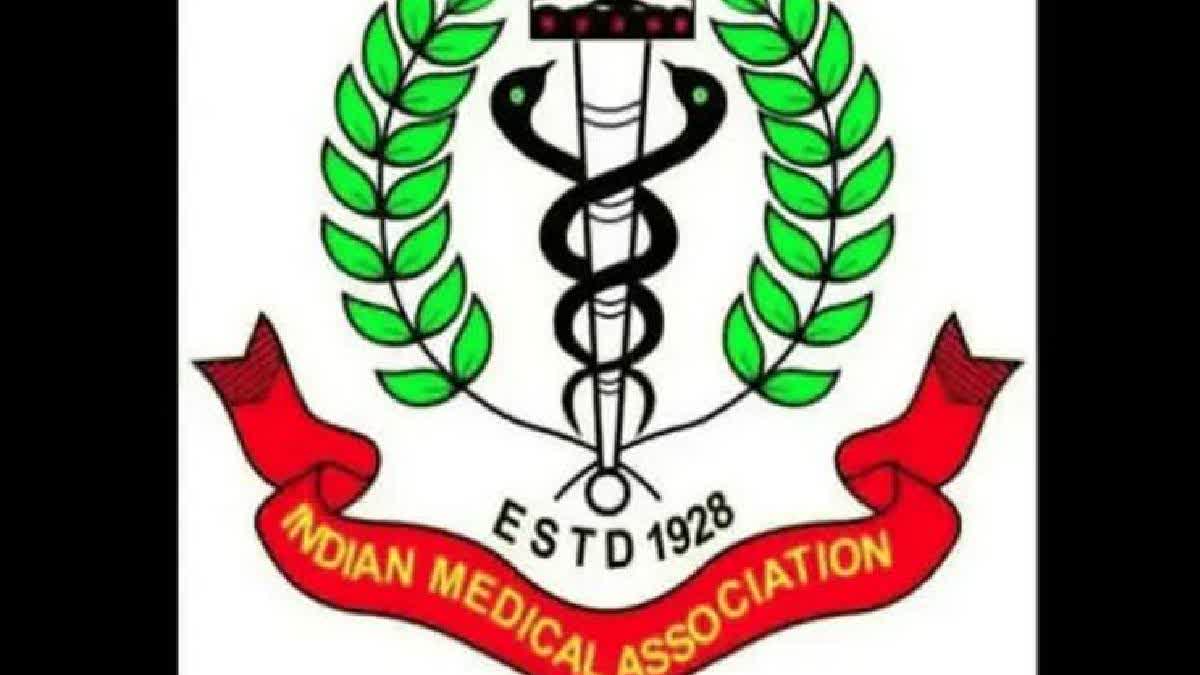New Delhi: As Antimicrobial Resistance (AMR) continues to pose grave threat to public health, the Indian Medical Association (IMA) has come up with an initiative to fight the menace through its 'IMA AMR Smart Hospital' project.
“A first of its kind globally, the project was designed to address the escalating public health threat of Antimicrobial Resistance through targeted interventions in healthcare facilities across India,” Dr RV Asokan, national president of IMA said.
The AMR is the resistance of bacteria, fungi, and parasites to the already susceptible antimicrobials. The rising AMR poses a significant threat to global public health and has environmental, political and economic implications.
The last antibiotic molecule on the market was discovered in 1987. “The development of resistance to antimicrobials of the common infectious pathogen has left us with fewer treatment options and will take us to an era where common infections will also be fatal,” Dr Asokan said.
As per data, AMR is also one of the leading causes of death globally, with 4.9 million deaths attributable to AMR in the year 2019. There were 2,97,000 deaths attributable to AMR of which, 1,042,500 were in India.
The prescription rate of antibiotics in India is 412 for every 1000 population, which is significantly high.
“The development of resistance to antimicrobials of the common infectious pathogen has left us with fewer treatment options. The increased rate of origin of resistance will undo a century of medical advances and will take an era where common infections also will be fatal. Antibiotic resistant infections are one of the biggest challenges for hospitals to deliver safe and effective healthcare,” he said.
The 'IMA AMR Smart Hospital' project will guide patient care and also detect outbreaks. “The AMR surveillance data can help improve the appropriate application of antimicrobial agents. It will also provide data that helps understand the complex epidemiology of AMR. Hospitals are reservoirs of pathogens that can be easily spread by patients, visitors and staff,” Dr Asokan said.
Pilot Phase
As part of the pilot phase registration forms were disseminated to over 1,700 IMA branches across India, garnering an overwhelming response from hospitals nationwide. A rigorous selection process identified hospitals for initial participation, representing diverse regions and healthcare settings.
An accreditation committee comprising renowned experts was established to guide the project and ensure quality oversight. Hospitals underwent a comprehensive assessment process, including an initial desktop evaluation, followed by mentoring and supportive supervision by experts. Finally, there was on-site assessment based on a standard checklist.
Key Milestones
On December 27, IMA is giving certification to four exemplary hospitals as 'IMA AMR Smart Hospitals', setting benchmarks for excellence in AMS and IPC. The hospitals that have been recognised as IMA AMR Smart Hospitals include KD Hospital, Ahmedabad (Gujarat), Mahavir Jaipuria Rajasthan Hospital (Jaipur), Sehgal Neo Hospital (Delhi) and Ananthapuri Hospital and Research Institute (Kerala)
“These hospitals have demonstrated remarkable improvements in AMS protocols, antibiotic usage patterns and IPC measures, positioning themselves as leaders in combating AMR,” Dr Narendra Saini, chairman IMA -AMR standing committee said.
He said that the basic aim of IMA AMR Smart Hospital Project was to enhance Antimicrobial Stewardship (AMS) and Infection Prevention and Control (IPC) practices in hospitals.
Read more



